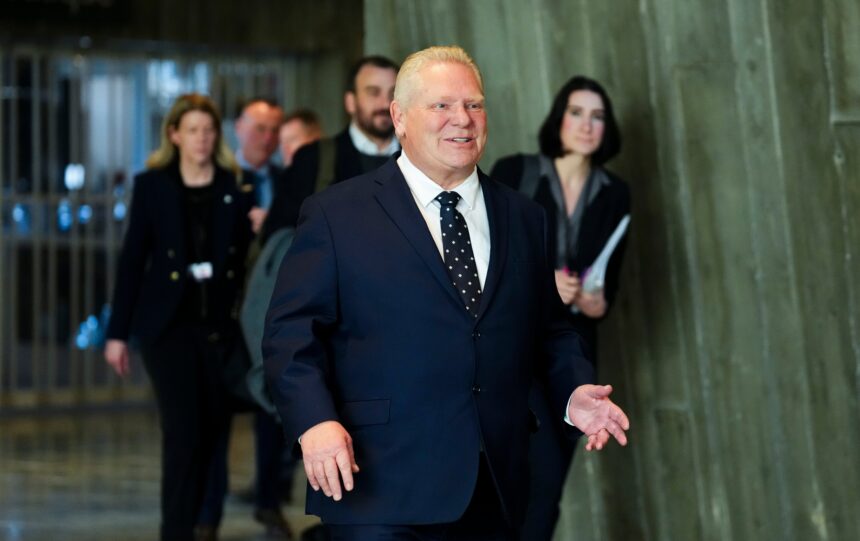The provincial government’s Bill 17 has Toronto city planners and environmental advocates increasingly concerned as its implications for local green building standards become clearer. Having tracked this legislation since its introduction, I’ve witnessed growing frustration among municipal leaders who see their sustainability powers being systematically dismantled.
“This effectively strips Toronto of its ability to require higher environmental standards in new developments,” explains Jennifer Keesmaat, former Toronto Chief City Planner, during our conversation at City Hall yesterday. “We’ve spent years developing these frameworks, only to have them nullified with minimal consultation.”
The controversial bill prevents municipalities, including Toronto and Ottawa, from implementing building standards that exceed the provincial building code – particularly concerning energy efficiency and environmental design requirements that many cities have championed through programs like Toronto’s Green Standard.
The timing couldn’t be more problematic. Toronto’s ambitious TransformTO climate action strategy aims for all new buildings to be near zero emissions by 2030, a target now jeopardized by these provincial restrictions. Ottawa faces similar challenges with its own climate initiatives.
Environmental Defense Canada’s Keith Brooks didn’t mince words when we spoke. “This represents a significant step backward for climate action in Ontario’s largest cities. The building sector accounts for nearly 40% of emissions in urban areas, and local governments need tools to address this.”
Toronto’s green standards had been driving innovation in the construction industry, pushing developers to incorporate better insulation, high-efficiency heating systems, and renewable energy features. Under the new provincial framework, these requirements become optional rather than mandatory.
City Councillor Mike Layton explained the practical implications during our tour of a recently completed green development in Liberty Village. “These buildings cost marginally more upfront but save tremendously on operating costs while reducing carbon footprints. Now we’ll likely see a race to the minimum standards.”
The development industry has offered mixed reactions. The Ontario Home Builders’ Association supports the change, arguing it will streamline approvals and potentially reduce costs. “Consistent provincial standards create predictability across municipalities,” their spokesperson noted during yesterday’s press conference.
However, not all developers agree. Diamond Schmitt Architects’ Jennifer Mallard told me several of their clients specifically seek higher environmental standards regardless of requirements. “Forward-thinking developers understand these features provide market advantages and long-term value. But without municipal requirements, we’ll see fewer adopting them.”
The bill arrives amid Toronto’s housing affordability crisis, with the province positioning it as a measure to accelerate construction and reduce costs. Critics counter that any modest savings will come at a steep environmental price.
Toronto’s Environmental Alliance conducted analysis suggesting the bill could increase the city’s emissions by up to 17% over projected reductions by 2030. Their research director emphasized, “We’re not just losing environmental benefits – we’re actively moving backward on climate commitments.”
The legislation also raises questions about municipal autonomy. Cities have traditionally used development approvals to negotiate community benefits, including environmental features. This provincial intervention effectively centralizes power in areas previously considered local jurisdiction.
Urban planning experts from the University of Toronto point out that different municipalities face unique environmental challenges requiring tailored approaches. “What works for Thunder Bay may not suit Toronto’s dense urban environment,” noted Professor Pamela Robinson during last week’s urban planning symposium.
Several local tech startups focused on green building technologies have expressed concerns about market impacts. Ecobee’s CEO Stuart Lombard shared his perspective: “This creates uncertainty for companies developing innovative solutions for urban sustainability. It sends the wrong signal to cleantech investors.”
Looking ahead, Toronto officials are exploring potential workarounds, including voluntary programs with incentives rather than requirements. However, most experts agree these approaches will prove less effective than mandatory standards.
As Toronto’s skyline continues transforming with new developments, the implications of Bill 17 will become increasingly visible – or rather, what becomes invisible will be the green features that might have been incorporated. The question remains whether the promised housing benefits will materialize to offset these environmental costs.
For residents concerned about climate impacts, these provincial restrictions represent a significant setback to local climate action. As someone who’s reported on Toronto’s environmental initiatives for years, I’ve rarely seen such unanimous concern from sustainability experts about a single piece of legislation.
The province maintains these changes are necessary for addressing housing needs, but many Torontonians wonder if we’re creating tomorrow’s problems while attempting to solve today’s crisis.







